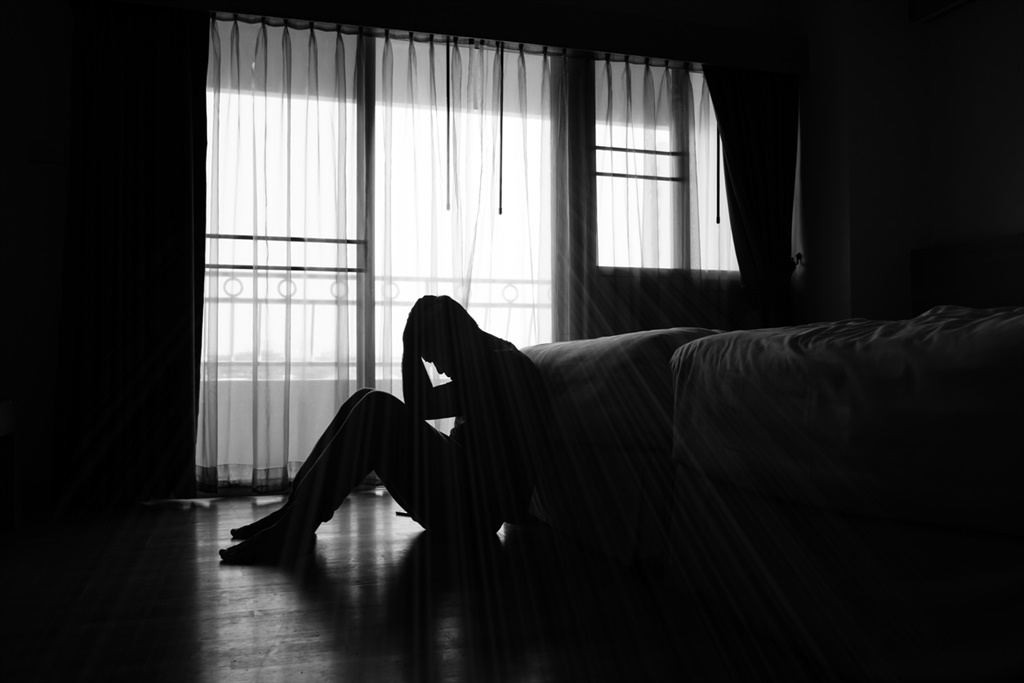
The Covid-19 coronavirus has caused an “emotional tsunami”, which places another stress on an already tense society.
This is the view of Suntosh Pillay, a clinical psychologist working in the public sector in KwaZulu-Natal.
He believes that South Africa could see a massive rise in depression following the pandemic.
“I think there’s going to be intense feelings of depression after this, especially as we’re dealing with the after-effects of the economic meltdown,” he said.
“We must never talk about keeping people physically healthy without a parallel conversation about keeping people emotionally well. We need to keep [the] conversation around mental health alive on all levels.”
An emotional tsunami
Pillay says that the pandemic has caused what he calls an emotional tsunami.
“People’s feelings are exacerbated to the extremes at the moment, especially because of the uncertainty of what’s going to happen,” he says.
“We don’t want to pathologise people’s feelings, because [they] are normal and acceptable, but it takes a toll on mental health even if it doesn’t lead to serious mental illness. It definitely leaves people in a perpetual state of stress,” he says.
However, Pillay adds that the lockdown came with some positive mental health benefits, such as added time at home with family.
“I think on the one hand there are potential benefits to mental health, but on the other hand, more so, there are negative implications. Only the future will be able to tell us if these weeks in lockdown have created a rise in mental illness or not.”
What people worry about
A recent survey conducted by the South African Depression and Anxiety Group (Sadag) found that nearly half of the 1 214 respondents felt that financial stress and pressure were one of the main challenges during the lockdown.
Adding to this, over half of respondents cited anxiety and panic as a major challenge.
Masutane Modjadji, South African Federation for Mental Health’s (SAFMH), Information and Awareness Project Leader, says that people are worried about different things at the same time.
“For those who struggle to put food on the table, providing food for their families is a priority while sacrificing their safety. Those who were homeless, needed some kind of shelter whilst still practicing physical distancing, [and] those who are better off felt responsible for providing food for the poverty stricken,” says Modjadji.
Adding to this, Pillay says that there is a direct relationship between socioeconomic wellbeing and mental health. In his experience, Pillay says, most patients face stress and anxiety as a result of issues like food, money or employment.
“Covid-19 has forced humanity to adjust to a different way of life which has caused much stress which has a major impact not only for those with pre-existing mental health conditions but also for the broader population,” says Modjadji.
The hidden epidemic of gender-based violence
Pillay emphasises that gender-based violence was another major concern.
“There’s a whole hidden epidemic that’s happening around gender-based violence,” he says.
“People don’t have the room to leave the spaces that they’re trapped in.”
“I think there’s a double-edged sword about the alcohol ban,” he says.
“On the one hand, people are becoming abusive because of not being able to drink alcohol or smoke cigarettes, and on the other hand, where people are getting access, it’s exacerbating the effects of alcohol-induced gender-based violence.”
Pillay adds that as a result of the lockdown, other vulnerable groups, like the LGBTQI+ community, could be forced to be in emotionally violent spaces for long periods of time.
Mental healthcare on the front lines
While shortages of essential psychiatric medicines and personal protective equipment continue to plague facilities across the country, mental health professionals are hard at work making sure some of society’s most vulnerable people still receive the highest quality of care.
Professor Bonga Chiliza, president of the South African Society of Psychiatrists says that a lot of the trauma from the pandemic comes from its size as case numbers increase every day.
If we can flatten the curve and reduce the impact on hospitals, this trauma may be reduced.
Chiliza says that he and his colleagues were trying to gain access to foreign medical journals to better understand the possible reactions that mental healthcare users could have to the virus, and how to treat them.
“One of the things that has come out to us [in the research] which was surprising, is that a lot of frontline workers really felt traumatised by [the pandemic], and they described symptoms which sounded like Post-Traumatic Stress Disorder (PTSD),” says Chiliza.
“I presume that that’s likely to happen here.”
The psychiatrists society, along with Sadag, the South African Medical Association (Sama) and other health professionals have set up a network of mental health professionals to help the country’s frontline healthcare workers.
So far, Chiliza says, the project has assisted workers in Johannesburg and Durban, and there are plans to launch in Cape Town as soon as possible.
“It’s mostly young doctors and nurses [who] are worried about getting the virus but also taking it home to their families,” says Chiliza.
Patient care during lockdown
“The first few weeks [of the lockdown] were quite quiet in our psychiatric wards and clinics but towards the end of the month a lot of people were being admitted and a lot of that was due to the fact that they were too scared to get more meds,” says Chiliza.
Chiliza says that patients who were stable were given two months’ worth of psychiatric medicines, but concerns and stress from the pandemic were resulting in some patients not taking their medications.
“The difficulty is that some of the things we ask people to do who are depressed or anxious, is often around chatting to families, going outside for walks and now all of those things have been stopped.”
As a result, Chiliza says, people are struggling to find ways to remain connected and supported by their families.
Government action
Besides the guidelines issued for psychiatric facilities, government says it has stepped up to improve psycho-social support services to families in need during this time.
In a briefing last week, Social Development Minister Lindiwe Zulu announced that 276 psycho-social support teams would be dispatched at district level. The purpose of the teams, she said, was to assist with trauma, briefing and debriefing families affected by the Covid-19 pandemic.
Deputy director-general of welfare Services, Connie Nxumalo, said at the same briefing that the teams comprised social workers who were trained in trauma counselling.
“The support they provide is counselling and reunification with those who have been in quarantine [and/or isolation] sites.”
Nxumalo said that the psycho-social teams worked alongside the department of health to receive information about which families needed assistance and intervention. However, these teams are not part of the contact tracing or rapid response teams.
She added that individuals were also consulting with social workers, and that the department had conducted almost 10 000 individual counselling sessions so far.
Include mental health in Covid-19 screening
Modjadji and Pillay both agreed mental health screening should be factored into the screening process for Covid-19.
“Even if it’s not part of the formal screening process, they need to pick up on people who might have pre-existing mental health conditions or might be at risk for developing a mental health problem,” says Pillay.
Modjadji says that government also need to prioritise resources and support for community mental healthcare facilities run by the non-governmental organisation sector.
“These facilities are in need of face masks, gloves and sanitisers to ensure that residents practice safe hygiene and physical distancing,” she says.
The SAFMH called for primary health care clinics to ensure persons with mental illness have access to at least a three months’ supply of medication.
Spotlight asked the national department of health various questions about this topic.
The department did not provide answers to these questions by the time of publication. We will publish the responses when/if we get them.
Free help is available!
For those who are struggling during this time, Pillay says that the Psychological Society of South Africa has created an extensive database of psychologists offering free services for anyone in need. To connect with one of these professionals, you can email Fatima@psyssa.com
This article was produced by Spotlight – health journalism in the public interest.




 Publications
Publications
 Partners
Partners









